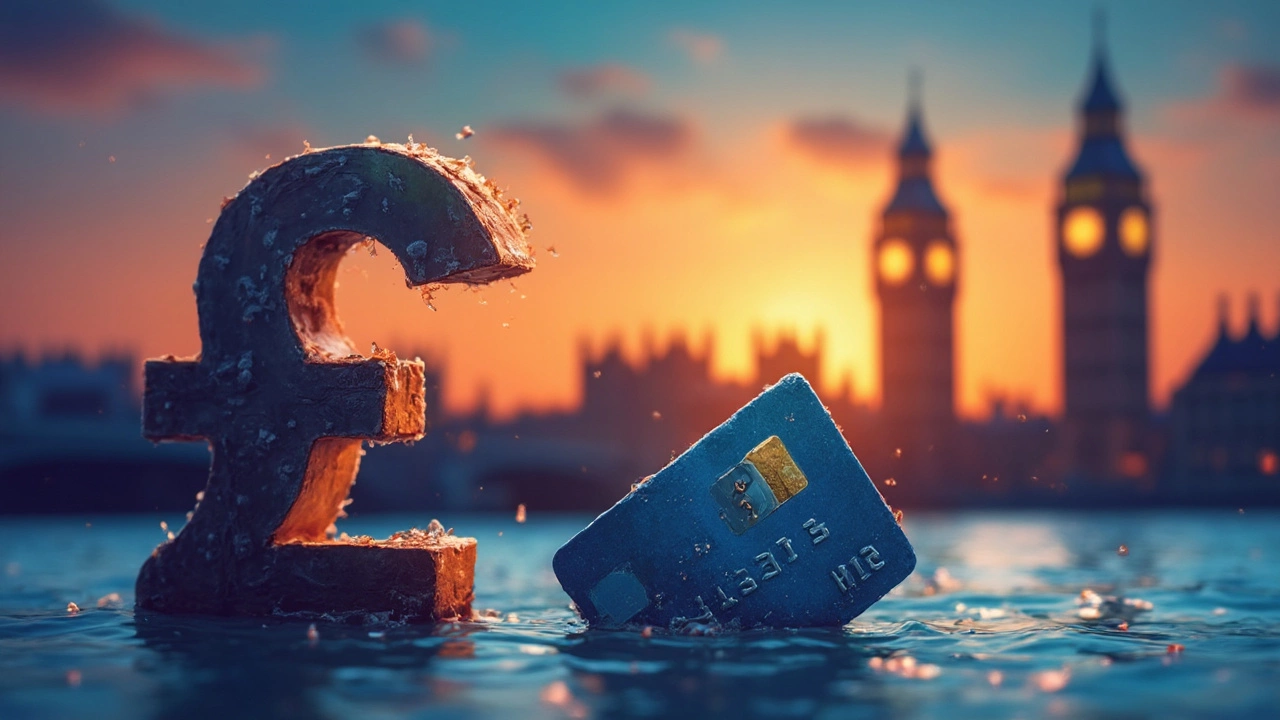Credit Card Essentials: Rules, Scores & Smart Strategies
Credit cards feel like a double‑edged sword. They can boost your buying power, earn rewards, and help you build a solid credit score. At the same time, a misstep can yank points off your score and pile on debt. Let’s cut through the noise and give you practical steps you can use today.
What is the Chase Rule and Why It Matters
If you’ve ever applied for a Chase credit card, you might have heard about the “Chase rule.” In plain English, it’s a set of internal guidelines that decide whether your application gets approved. The rule looks at how many Chase cards you already have, how long you’ve been a customer, and whether you’ve recently opened new accounts with other lenders.
Why care? Because ignoring the rule can lead to a denied application and a hard inquiry that nudges your credit score down. To stay in the clear, keep your total number of Chase cards under the informal limit (usually three) and avoid opening multiple new cards across different banks within a short window.
How Credit Cards Impact Your Credit Score
Credit scores are a mix of payment history, credit utilization, length of credit history, new credit, and credit mix. A credit card directly touches three of those buckets:
- Payment history: Pay on time every month and you add positive data.
- Credit utilization: Keep the balance under 30% of the limit. If you have a £5,000 limit, try to stay below £1,500.
- Length of credit history: Older accounts help, so think twice before closing a card you don’t use much.
One mistake many make is maxing out a card right after opening it. That spikes utilization and can shave points off your score fast. Instead, use the card for small, regular purchases you can pay off immediately.
Our recent post “Understanding the Chase Rule: When and Why It Matters in Personal Finance” dives deeper into the rule’s nuances, so give it a read if you want the full scoop.
Another common question is whether debt consolidation hurts your score. The short answer: it can, but only temporarily. Consolidating high‑interest credit‑card debt into a single loan often reduces overall utilization, which can be a net win after the initial hard inquiry.
For a step‑by‑step breakdown, check out our guide “Does Debt Consolidation Hurt Your Credit? What Happens To Your Score.” It explains how to protect your score while you simplify payments.
Now, let’s talk about rewards. Not all cards are created equal. Some offer cash back on groceries, others give travel points. The key is to match the reward to your spending habits. If you spend a lot on food delivery, a 3% cash‑back card on dining makes sense. If you travel twice a year, a card with airline miles and no foreign transaction fees could save you more.
Remember, rewards are a bonus, not a reason to overspend. Treat a credit card like a debit card that you must pay off every month. That habit keeps interest at zero and your credit score healthy.
Finally, keep an eye on fees. Annual fees can eat into rewards if you don’t use the card enough. Some cards waive the fee for the first year—use that trial period to see if the perks outweigh the cost.
In short, a credit card is a tool. Use it wisely: respect the Chase rule, keep utilization low, pay on time, pick rewards that fit your lifestyle, and consider consolidation only when it improves your overall credit picture. With these habits, your credit card can work for you, not against you.

Best Credit Card to Own Right Now for Maximum Benefits
In the diverse world of credit cards, identifying the top choice can be overwhelming. The best credit card offers excellent rewards, low-interest rates, and valuable perks while aligning with individual spending habits. This article provides a detailed comparison of credit card features, helping readers make an informed decision about the most beneficial card for their needs.

Is It Better to Not Use or Cancel a Credit Card?
When it comes to managing credit cards, knowing whether to just avoid using a card or to cancel it altogether can be a tricky decision. Each choice comes with its own impact on your finances and credit score. This article explores the pros and cons, helping you make the best decision based on your situation. We'll discuss credit utilization, account history, and how they play a role in your overall credit health.

Negotiate Your Credit Card Interest Rate Successfully
Negotiating your credit card interest rate is not only possible but can be a savvy financial decision. Many cardholders are unaware that they have the ability to lower their rates, potentially saving hundreds of dollars. This article explores the reasons credit card companies may be willing to negotiate, the key steps to take in the negotiation process, and how consumers can prepare for these discussions. By understanding these factors, individuals can effectively reduce their interest rates and improve their financial health.

Hidden Pitfalls of 0 APR Credit Card Offers
Understanding 0 APR credit card offers requires more than just seeing them as a way to save on interest. While attractive at first, these offers can have hidden drawbacks. It's important to be aware of balance transfer fees, the potential for high interest rates after the promotional period, and how they might affect your credit score. By knowing what to look out for, you can make more informed decisions about using these types of credit cards.





